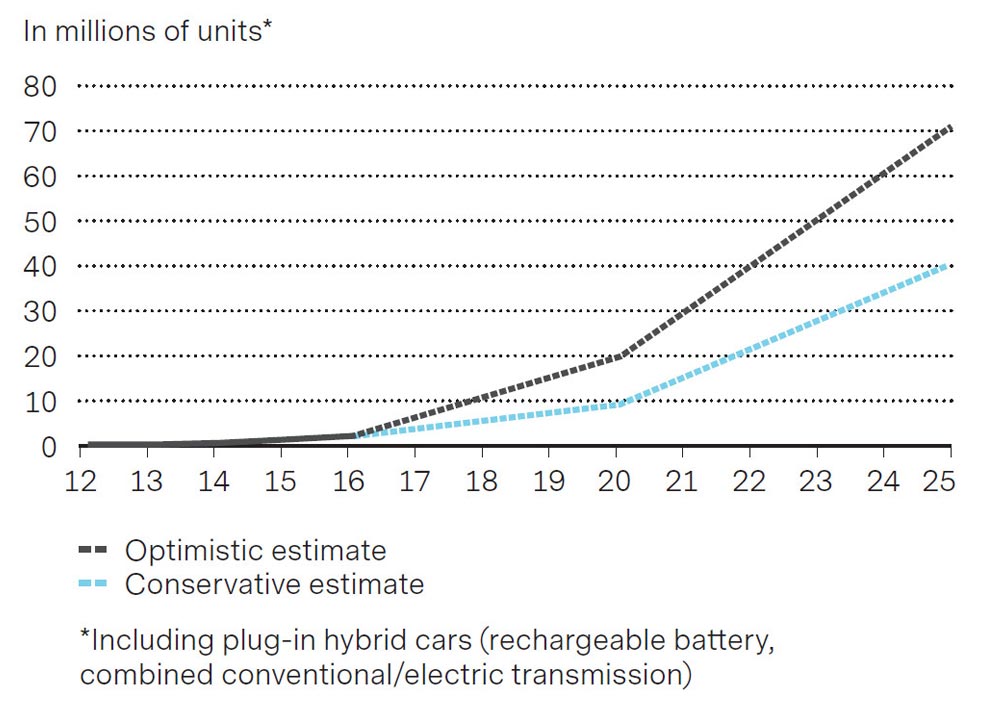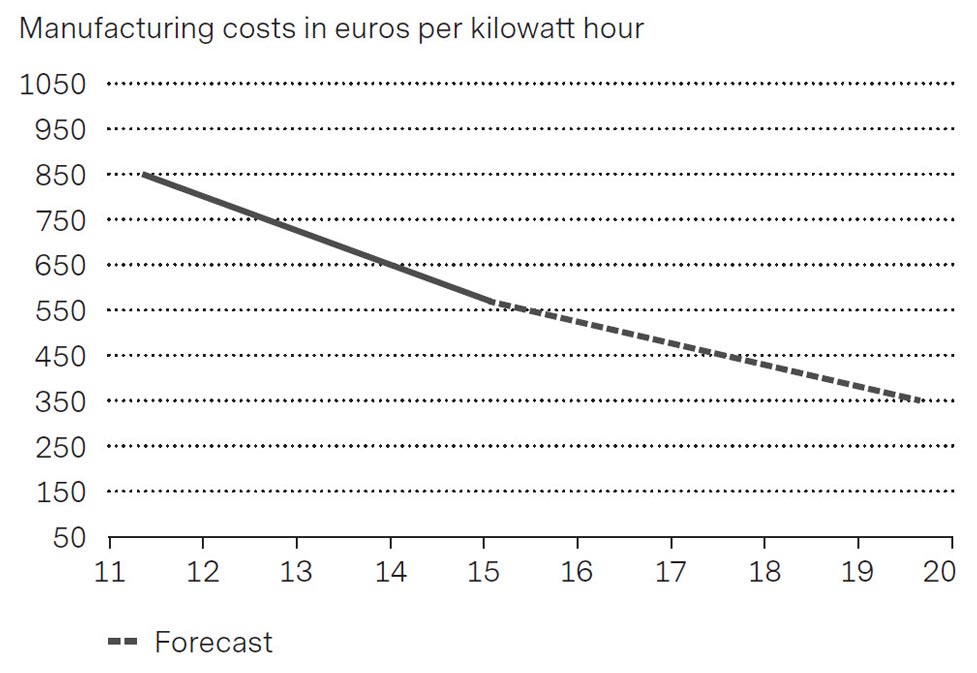Battery companies as secret winners of the trend towards electric vehicles
Is the good old combustion engine puttering towards its well-deserved retirement? In any case, electric vehicles are gaining ground. It is still unclear which automaker will secure pole position. However, battery manufacturers are likely to be among the hidden winners of this trend.
Gasoline and diesel problematic
China, the world's largest automobile market, wants to introduce a minimum quota for electric models from 2019. In Europe, for example, the UK and France are planning to ban combustion engines from 2040 onwards (for a selection of initiatives to promote electric mobility, see table). As the last year's International Motor Show (IAA) in Frankfurt has shown, automobile manufacturers are gearing up for the post-combustion engine era and presenting studies or new "e-models" – probably also in order not to be seen (any more) as polluters. Volkswagen serves as an example of the rethink among auto manufacturers. The company, which for a long time was hardly enthusiastic about electric automobiles, wants to offer electric versions of all its conventional models.
Electromobility has yet to make a breakthrough
Weaning drivers off gasoline and diesel will not happen overnight, especially as electric models leave a lot to be desired regarding price, range and charging infrastructure. For this reason, vehicles powered exclusively by electric motors have not really won over customers – apart from the conspicuous luxury models of the Californian manufacturer Tesla. Nevertheless, demand for electric vehicles is growing rapidly. The number of new registrations has accelerated in recent years, achieving high double-digit growth rates.
The manufacturers' good commercial prospects might also be reflected in investors' portfolios.
Only slightly more than 200,000 vehicles with an electric motor were on the roads worldwide in 2012, but by 2017 this figure had risen to over three million. Although the share of total vehicles sold remains low, according to the latest data from the European Automobile Manufacturers' Association ACEA, less than 10% of new registrations in Europe in 2017, the potential seems to be all the greater. We expect e-vehicles to capture a double-digit market share in the medium term. This is in line with the forecasts of the International Energy Agency IEA.
Electric cars in the overtaking lane after a slow start

Source: Statista, IAE, Vontobel
Batteries as energy storage in the garage
The battery alone currently accounts for just under a third of the purchase price of an electric vehicle. This is likely to change. Mary Barra, head of the largest U.S. automaker General Motors, recently announced that she expects the cost of one kilowatt-hour for the batteries of the flagship e-model Chevrolet Bolt to fall from the current 145 to about 100 U.S. dollars by 2021. This is significant for two reasons. On the one hand, buyers of electric vehicles will not have to dig so deeply into their pockets. On the other hand, automakers can increase their profit margins. In addition, it creates more of an incentive for them to invest more heavily in the development of electric vehicles.
High-performance lithium-ion batteries are getting cheaper and cheaper

Source: Statista, Vontobel
Outlook
The trend towards cheaper batteries reflects the worldwide increase in production. While the quantity produced in 2014 was equivalent to 50 gigawatt hours (GWh), this figure is currently 125 GWh. If forecasts that electric models could account for around 40 percent of the total market in 2020 are accurate, however, 2,500 GWh would be necessary. This in turn would create an industry with a volume of 240 billion U.S. dollars. In our view, the battery industry offers interesting investment opportunities. Investors could also be "electrified" by this theme.
